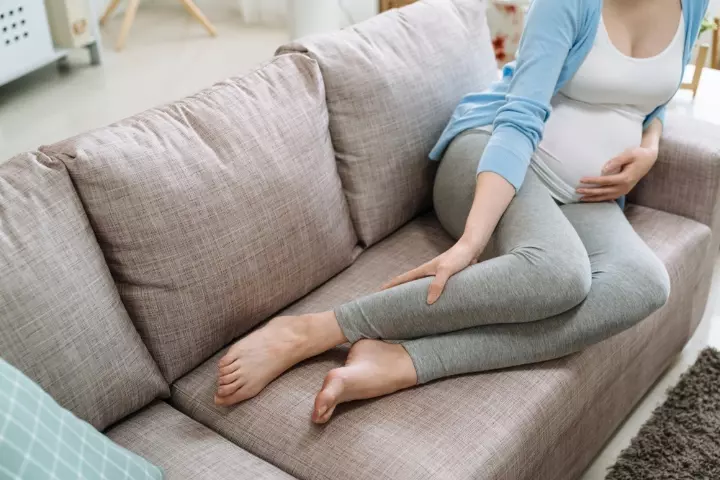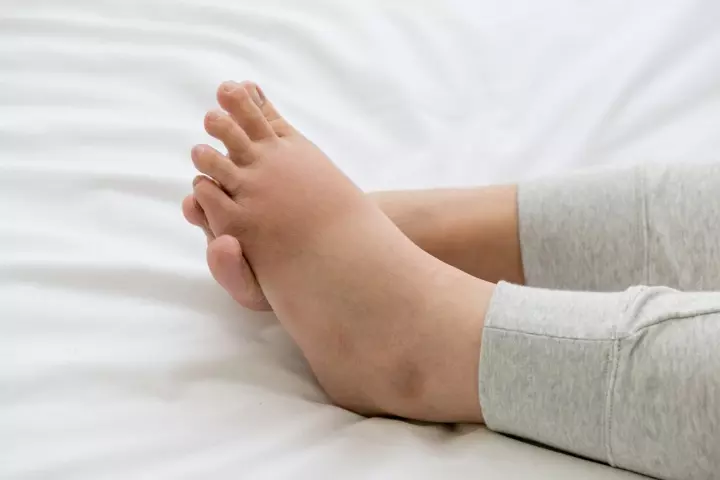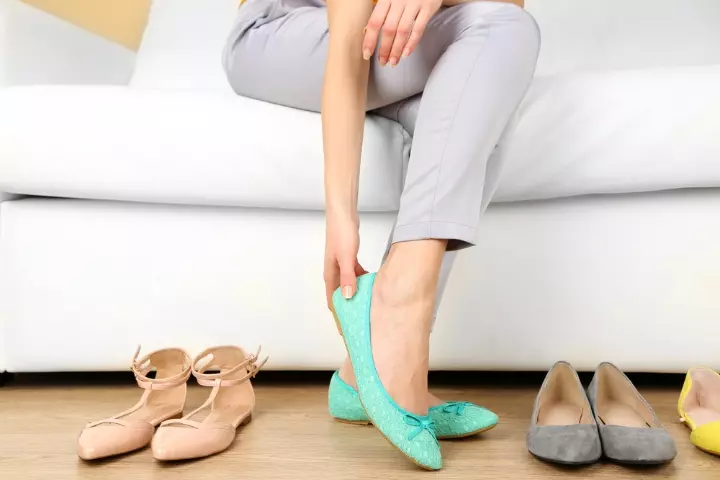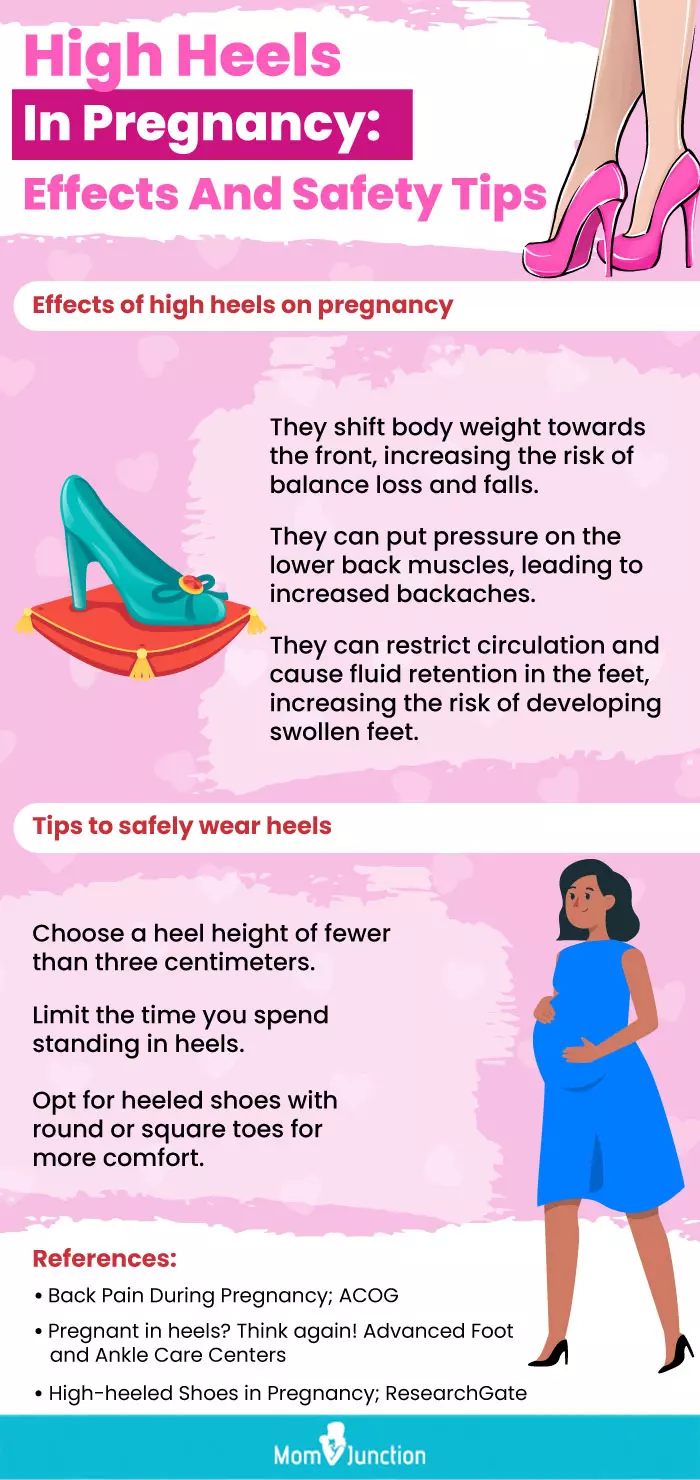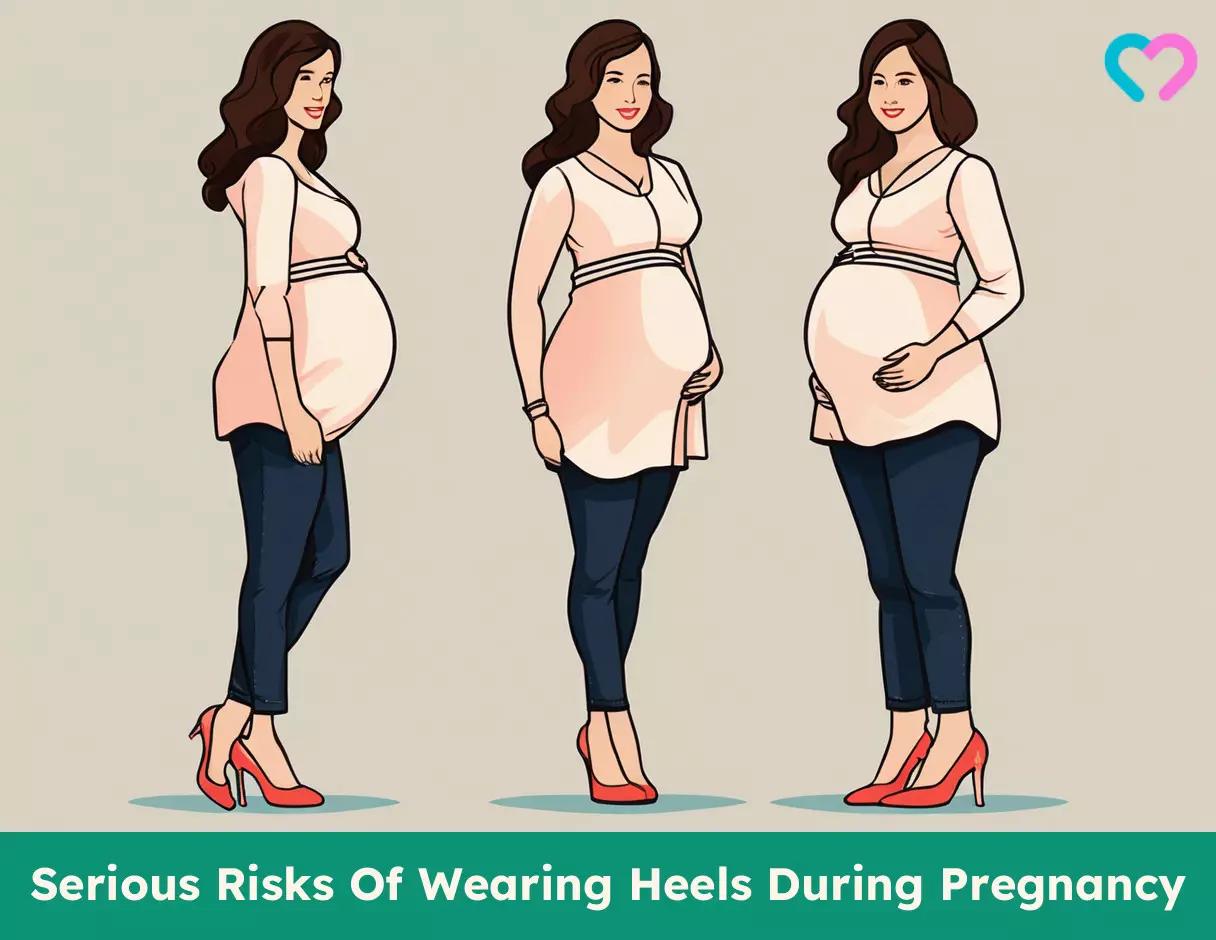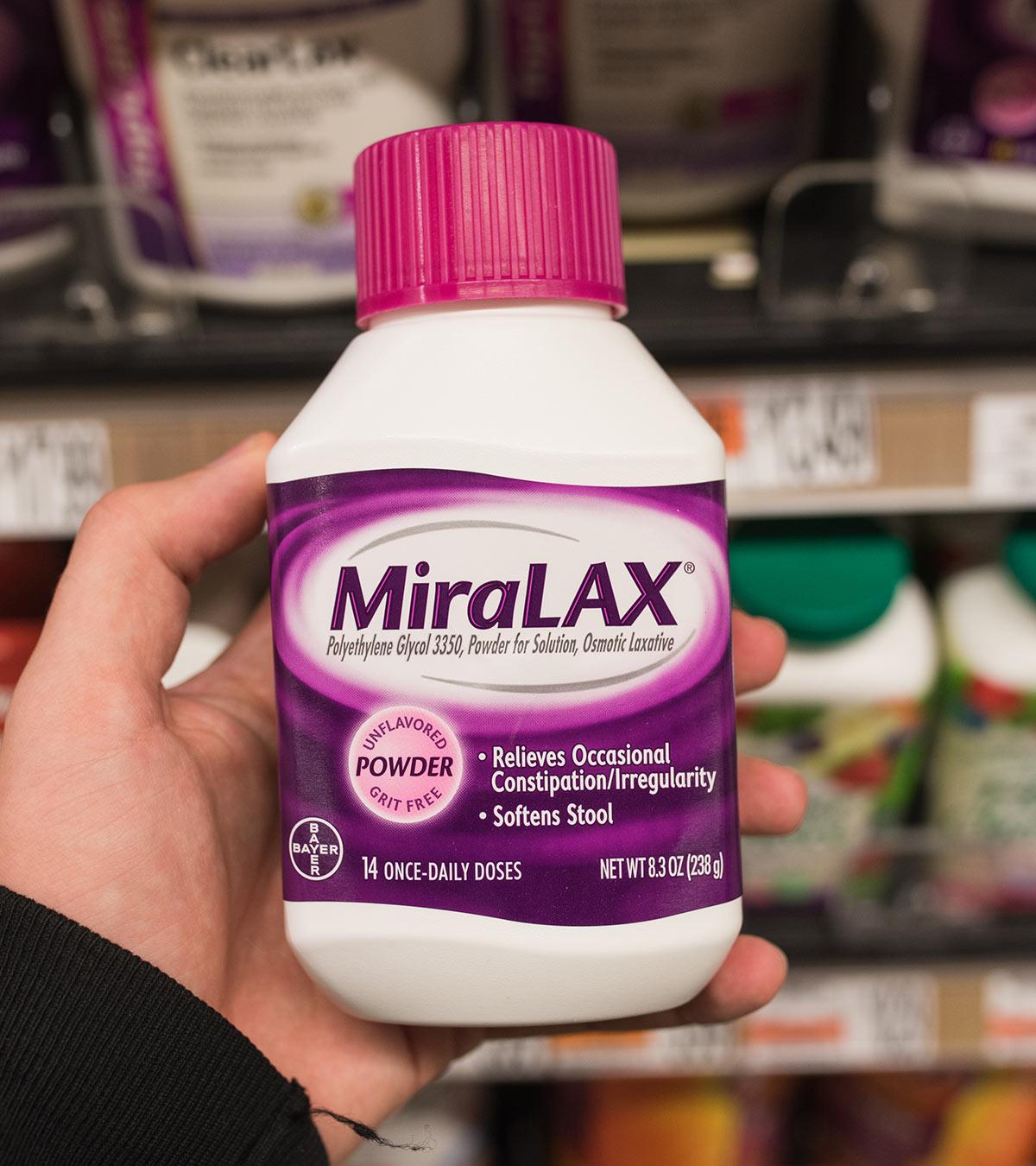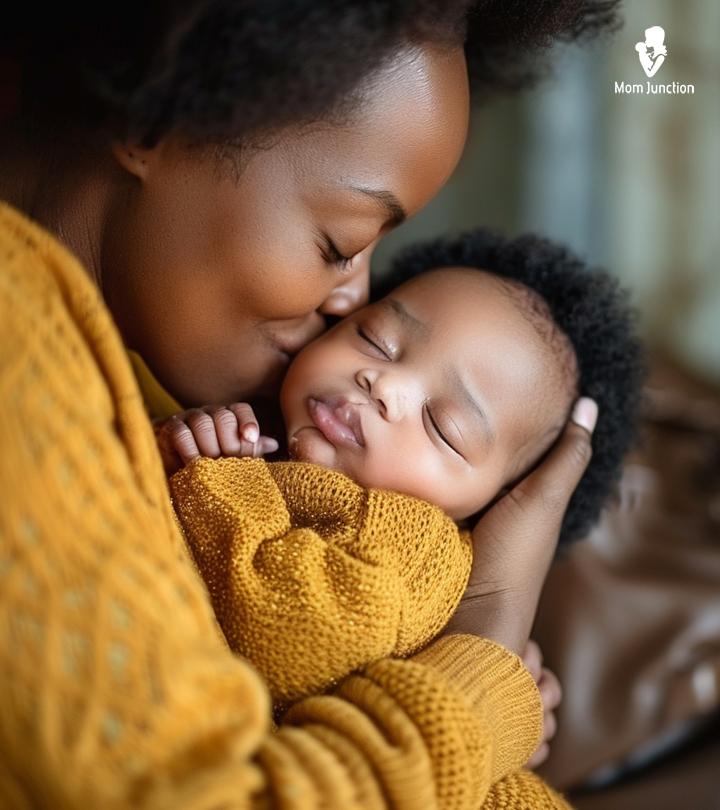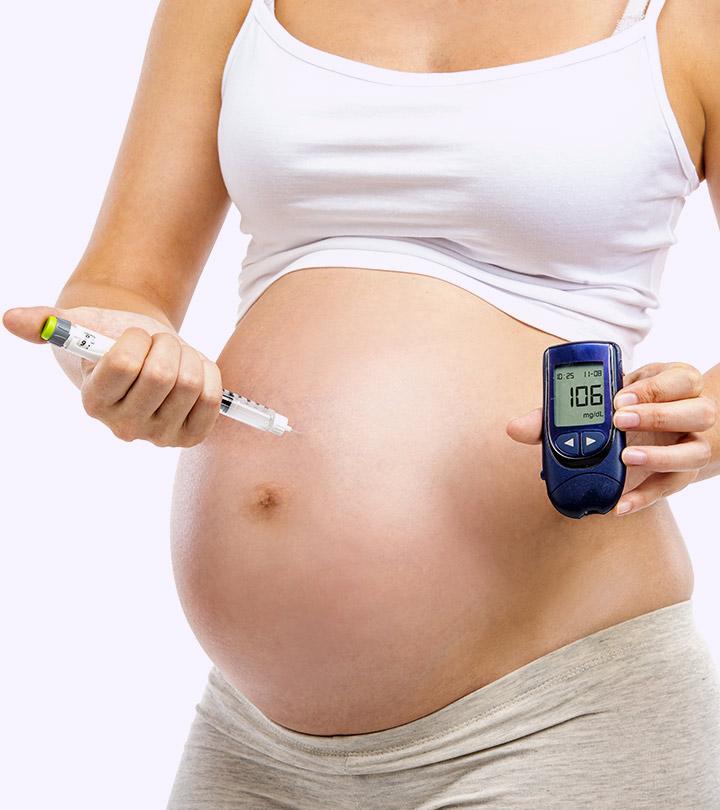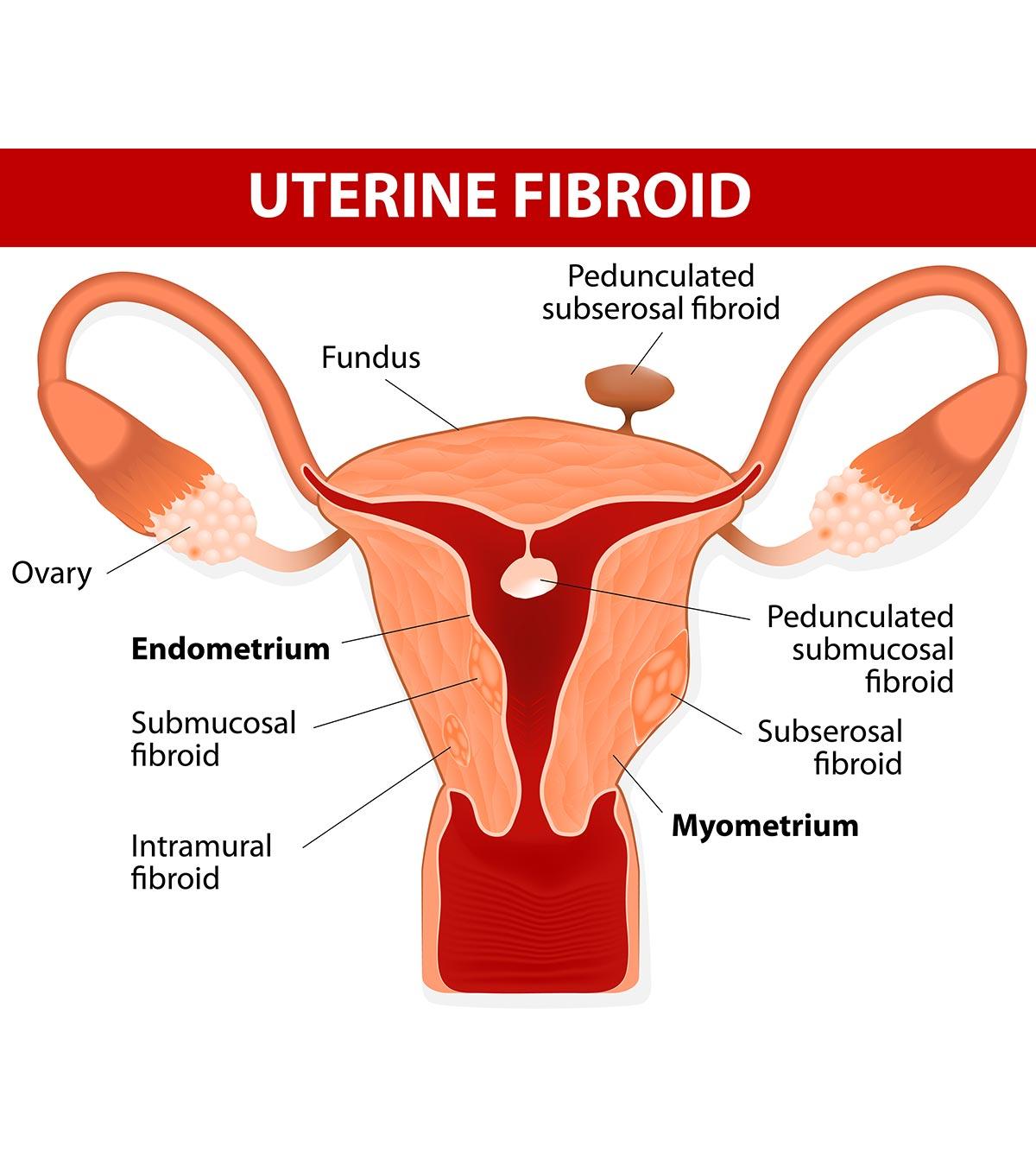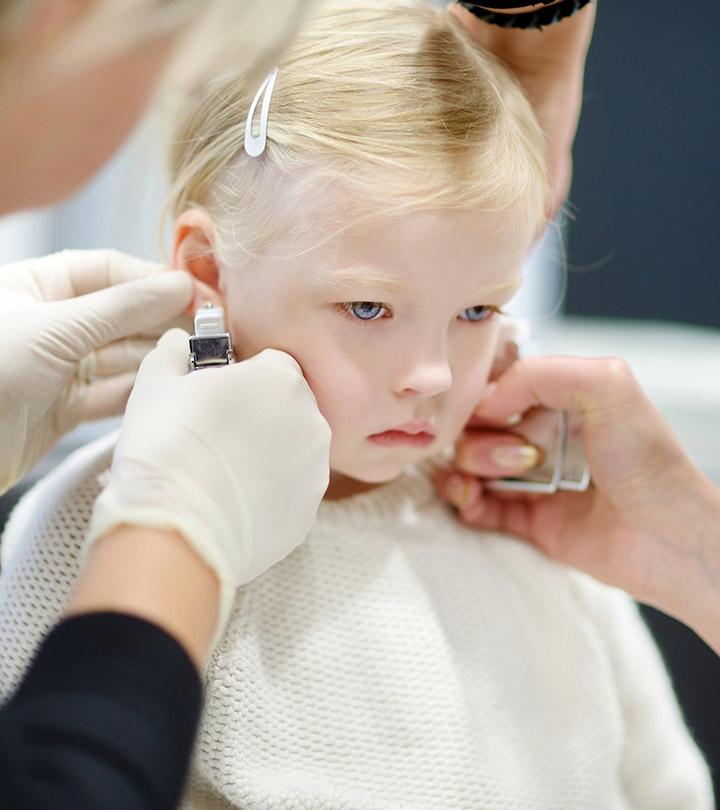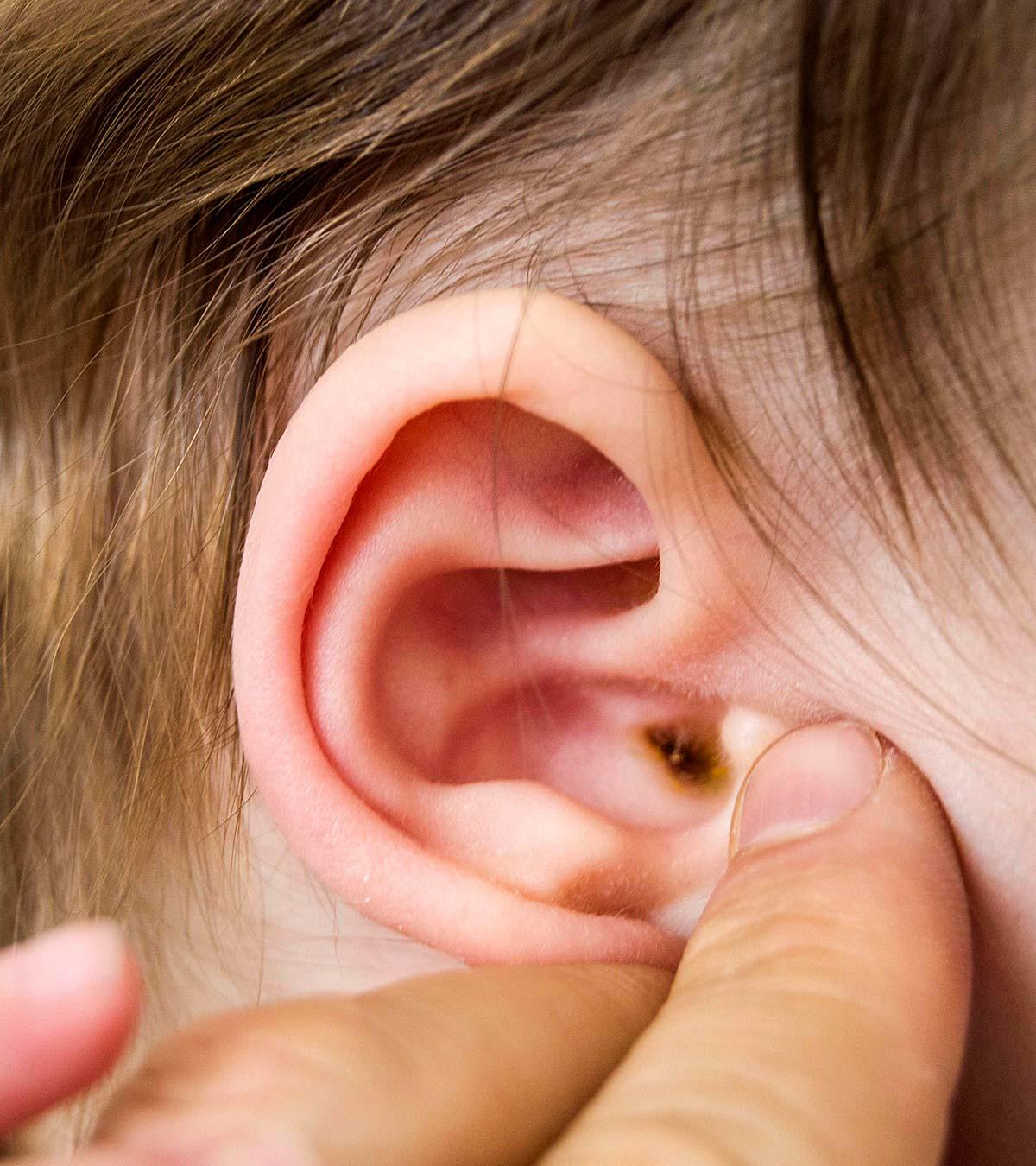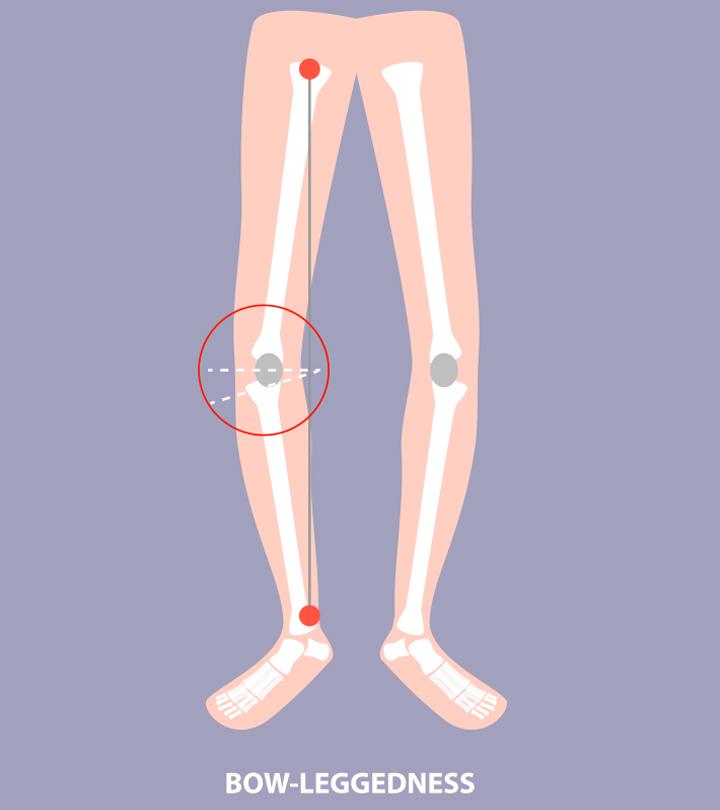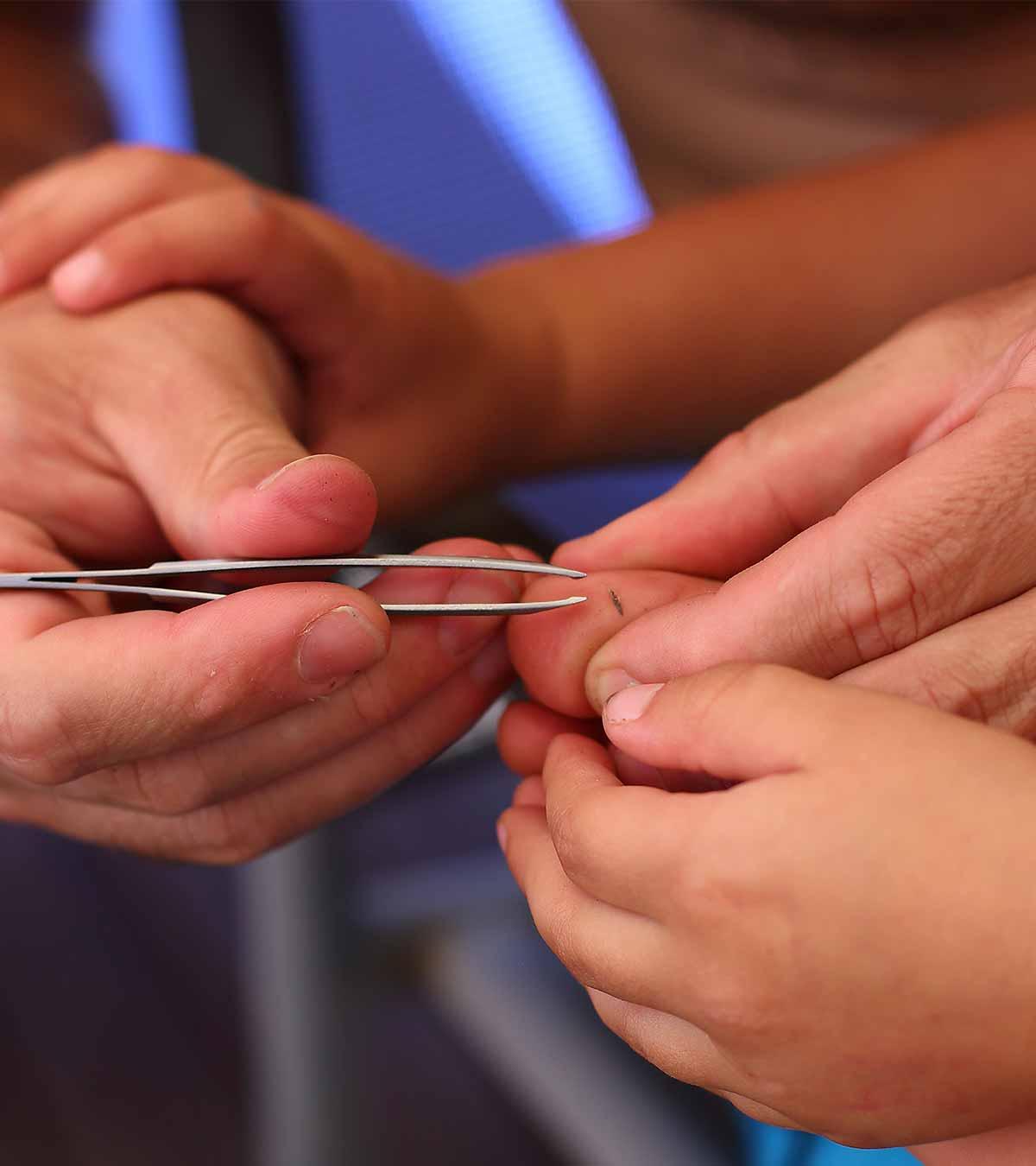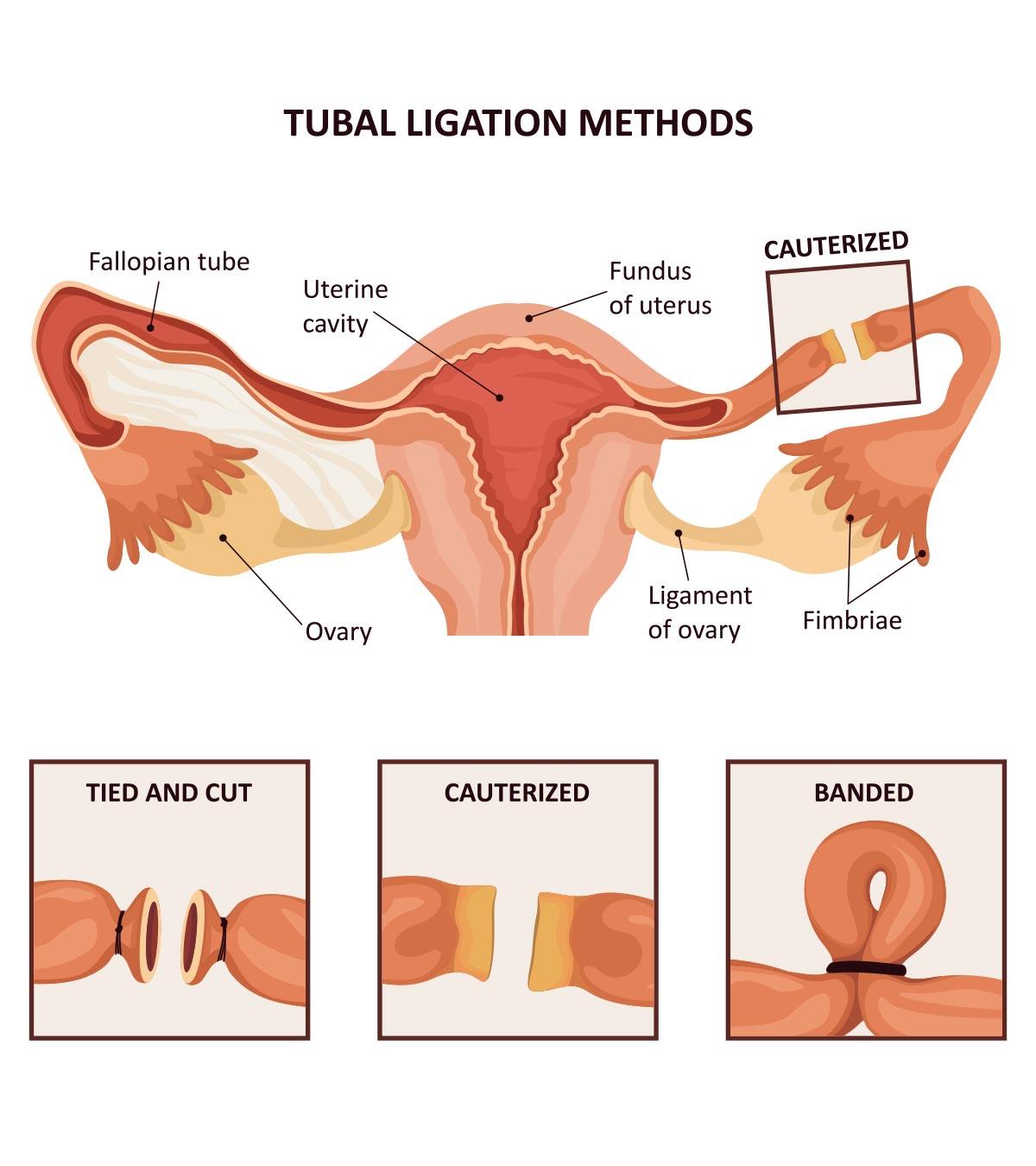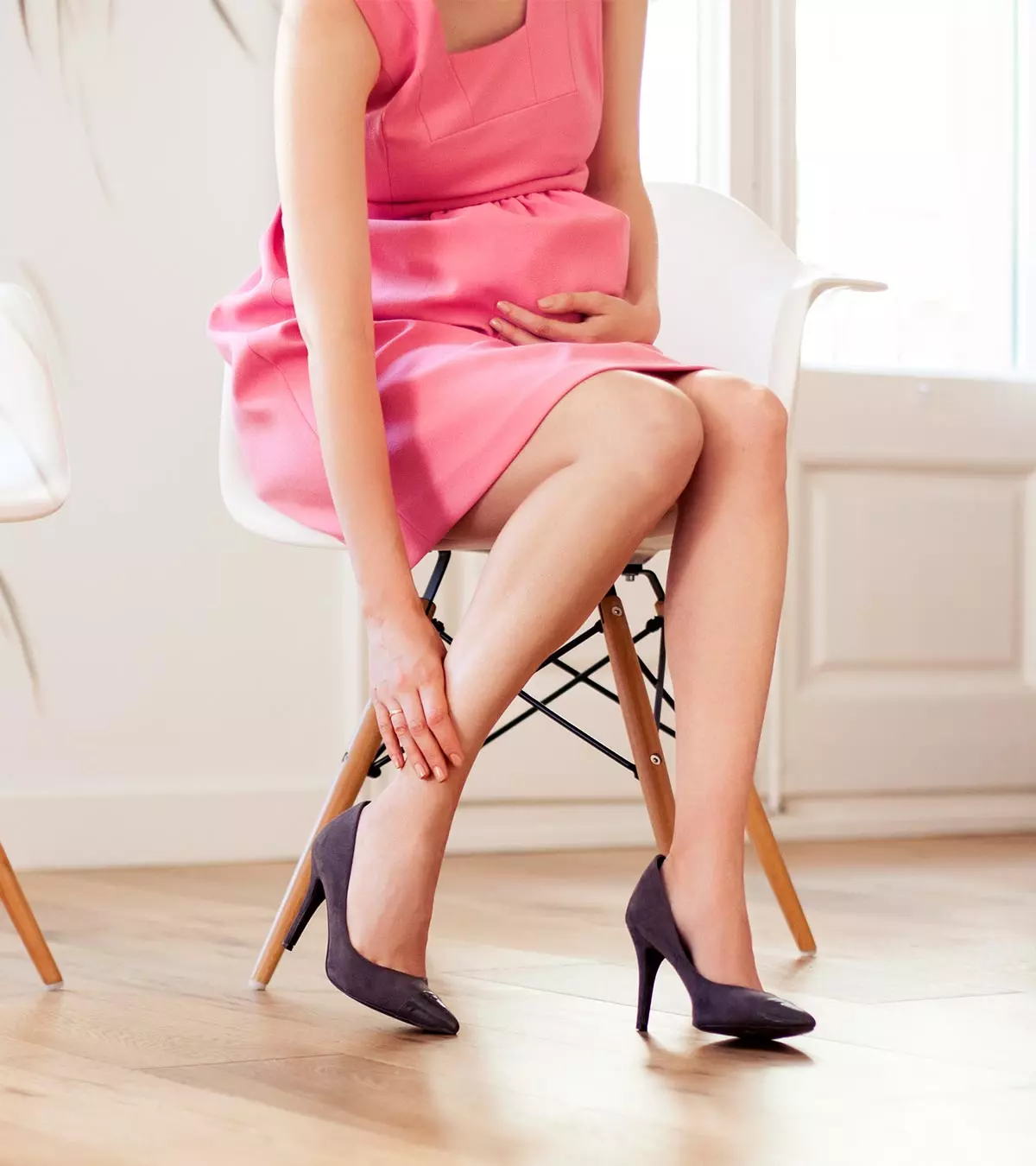
Image: iStock
High heels are an essential component of the style statement for many women. However, wearing heels during pregnancy may not be a good idea. Doctors strictly do not advise it for several scientific reasons. Your body weight and balance do not remain the same as pregnancy advances, and even muscles and ligamentsiFibrous connective tissue that supports organs, bones, and joints undergo certain changes (1). As a result, wearing heels may add to the discomfort of pains and cramps, cause balance issues, and pose certain other risks and injuries. Read this post as we talk about the effects of wearing heels on pregnant women and share some safety tips.
Key Pointers
- Wearing heels during pregnancy can be risky due to changes in body weight and balance.
- Heels may cause calf cramps, back pain, and swollen feet.
- There is a higher risk of miscarriage if you fall or experience trauma while wearing heels.
- It’s safer to wear low and sturdy heels during the first trimester.
Effects of Wearing Heels During Pregnancy
1. Calf cramps
Image: Shutterstock
When you wear heels for a long time, your calf muscles are in a contracted position. This leads to cramps in the muscles, which may be aggravated during pregnancy (2).
2. Back pain
High heels are supposed to alter your posture. Your pelvic muscles are bent forward, giving a rounder shape to your back.
- You will gain a considerable amount of weight around the front during pregnancy and this change in posture will cause pain.
- The ligaments in lower back and legs are loosened during pregnancy. Wearing heels puts excess pressure on the pelvic and back joints, since the support is not proper. This results in aches around joints and ligaments of lower back and pelvic area (3).
 Expert says
Expert says3. Less balance
The strength in your ankles is likely to reduce due to excess weight and hormonal changes in the body.
- This is a common reason that will lead to lower balancing capacity.
- The change in weight, altered balance, and shift in center of gravity make you more susceptible to falls.
- When wearing high heels, pumps heels, or sandals, you have a higher probability of losing balance and tripping over, which can cause injury to you and your unborn child (4).
4. Stretched muscles
Just like your back and abdomen, the ligaments in the ankles and calf also loosen due to pregnancy-induced hormones.
- This leads to stretching of muscles in the feet.
- The shoes that you could comfortably wear pre-pregnancy will now become tight and painful (5).
5. Swelling in feet
Image: Shutterstock
A medical condition known as edemaiSwelling caused by excessive fluid accumulation in tissues or swelling in legs, ankles and feet is quite common during pregnancy.
- Wearing tight maternity shoes and high heels or platform heels will further aggravate the problem.
- Wearing high heels, especially in late pregnancy, can cause swollen feet.
- More fluid will be accumulated in the lower part of your body, and along with swollen pregnant feet, you might also experience pain (6).
6. Miscarriage
A pregnant woman wearing high heels is always at a higher risk of sustaining falls/trauma which can result in having a miscarriage (7).
Tips To Wear High Heels In Pregnancy
Image: Shutterstock
Dr. Alan R. Lindemann, an obstetrician and a former clinical associate professor at the University of North Dakota, says, “Two things you need to know about high heels and pregnancy. First, relaxin, a hormone that your body produces to soften joints in your pelvis, also softens all the other joints in your body, including your knees, ankles, hips, and back. Second, high heels change the way your heels, ankles, knees, pelvis, and back respond to walking, leading to physiological abnormalities in all these joints.” As such, wearing heels during pregnancy is not advisable, as it can harm you and your baby. However, if you absolutely must, then keep the following tips in mind:
- It is okay to wear low heels in your first trimester, after which the hormonal flow increases and your muscles start to stretch.
- Try to wear lower and sturdier heels.
- Buy comfortable shoes that don’t create a tight grip on your feet.
- Avoid stilettos, platform heels or kitten heels. The thinner the heels, the less support your body will get, making it all the more difficult to maintain balance.
- If you have to wear heels during the entire day, try to take short breaks. Take them off for a while, relax your feet and then put them on again. Wearing wedge heels during pregnancy is not a good idea because there will be an increase in body weight, shape and center of gravity changes affecting your walking. Also, ligaments will be looser which may lead to muscle strain and joint instability.
- When wearing high heels at parties or outings, avoid walking and long hours of standing during pregnancy. If you have to wear them to get the perfect look, try to sit around most of the time.
- Replace your heels with flats like ballet flats or supportive shoes for everyday purposes.
Image: Shutterstock
- If you have worn heels and are experiencing discomfort, try stretching exercises for calf muscles and gently massage your feet.
- If you have any concerns about which footwear to buy or other issues regarding footwear during pregnancy, you may check with your doctor for advice.
 Quick tip
Quick tipMost women consider high heels a stylish must-have to keep up with pregnancy fashion; however, wearing heels while pregnant is not advised. High heels may inhibit normal walking motion and reduce blood flow to the extremities, despite the lack of scientific evidence linking them to varicose veinsiA condition characterized by dilated and enlarged veins, commonly seen in legs and feet during pregnancy. Wearing heels for an extended period can strain muscles and ligaments, leading to body aches in pregnancy. They may also increase your chance of a miscarriage due to trauma by contributing to unintentional trips and falls. It is best you substitute high heels with lower, more supportive heels or avoid them altogether during pregnancy to avoid complications.
Frequently Asked Questions
1. When to stop wearing heels during pregnancy?
It is best to wear low and sturdy heels during and after the first trimester of pregnancy. High heels are not recommended past the first trimester. Your feet undergo structural changes right from the first trimester due to the loosening of joints and ligaments. Additionally, the weight borne by the joints gradually increases with increasing body weight. All these factors may contribute to musculoskeletaliRelated to muscles, bone, ligaments, cartilage, or joints pain if the feet are not properly supported (8) (9).
According to Brian Clark, BSN, MSNA, “There is no scientific evidence to suggest that high heels damage the womb. However, some experts believe wearing high heels can put extra pressure on the pelvic floor muscles, which may lead to problems such as incontinenceiLack of control over the excretory system resulting in involuntary urination or defecation .”
2. How much heel is safe during pregnancy?
A low heel, not more than three centimeters (one inch), is considered safe for pregnant women (9).
3. Can you wear heels when nine months pregnant?
It is not recommended to wear heels when nine months pregnant.
4. Are there any benefits to wearing heels during pregnancy?
There are no significant benefits to wearing heels during pregnancy. In fact, it is generally recommended that pregnant women avoid wearing high heels to reduce the risk of falls and other injuries.
5. Can wearing heels cause blood clots during pregnancy?
There is no evidence that wearing high heels during pregnancy can lead to blood clots.
6. Can wearing heels cause hip pain during pregnancy?
Wearing heels during pregnancy may cause hip pain, as it can shift the body’s center of gravity and put additional strain on the hips and lower back (9).
7. Can wearing heels cause knee pain during pregnancy?
Wearing heels during pregnancy may cause knee pain, as it can increase the pressure on the knees and exacerbate existing knee problems (9). A study found that walking in high heels may predispose the knee joint to degenerative changes by altering the forces acting on it (12).
8. Can wearing heels affect the growth and development of the baby during pregnancy?
There is no direct evidence that wearing heels can affect the growth and development of the baby. However, it can increase the risk of falling while pregnant, which can indirectly harm the baby.
Infographic: Effects Of Wearing Heels During Pregnancy And Tips To Wear Them Safely
High heels are a popular choice of footwear for many women, but they may not be a good choice for moms-to-be. Wearing heels repositions the body’s posture, which may cause several physical issues and discomfort. Read on to learn the potential problems of wearing high heels during pregnancy, with helpful tips to safely wear heels if necessary. Illustration: Momjunction Design Team
Illustration: Serious Risks Of Wearing Heels During Pregnancy
Image: Stable Diffusion/MomJunction Design Team
References
- Pregnancy stages and changes.
https://www.betterhealth.vic.gov.au/health/healthyliving/pregnancy-stages-and-changes - Ouch! How heals can shrink leg muscle cause pain.
https://scopeblog.stanford.edu/2017-09-27-donor-gift-leads-to-innovative-cancer-clinical-trial/ - Aches and pains during pregnancy.
https://medlineplus.gov/ency/patientinstructions/000580.htm - Kaname Takeda et al.; (2015); Changes in balance strategy in the third trimester.
https://www.ncbi.nlm.nih.gov/pmc/articles/PMC4499990/ - Body changes and discomforts.
https://www.womenshealth.gov/pregnancy/youre-pregnant-now-what/body-changes-and-discomforts - Swollen ankles feet and fingers in pregnancy.
https://www.nhs.uk/pregnancy/related-conditions/common-symptoms/swollen-ankles-feet-and-fingers/ - Bulent Cakmak et al.; 2015; Postural balance and the risk of falling during pregnancy.
https://pubmed.ncbi.nlm.nih.gov/26212584/ - Neil A. Segal et al.; (2014); Pregnancy Leads to Lasting Changes in Foot Structure
https://www.ncbi.nlm.nih.gov/pmc/articles/PMC3596423/ - EL-Gharib, Mohamed & Albehoty, Sherin; (2018); High-heeled Shoes in Pregnancy.
https://www.researchgate.net/publication/324695214_High-heeled_Shoes_in_Pregnancy - Back Pain During Pregnancy.
https://www.acog.org/womens-health/faqs/back-pain-during-pregnancy - 5 ways to manage swollen legs and feet during pregnancy.
https://utswmed.org/medblog/swollen-feet-during-pregnancy/ - Dr D Casey Kerrigan MD et al.; (1998); Knee osteoarthritis and high-heeled shoes.
https://www.sciencedirect.com/science/article/abs/pii/S0140673697112818
Community Experiences
Join the conversation and become a part of our nurturing community! Share your stories, experiences, and insights to connect with fellow parents.
Read full bio of Dr. Ng Kai Lyn
- Dr. Alan Lindemann is an obstetrician and maternal mortality expert, who worked as a clinical associate professor at the University of ND. An alumnus of the University of ND and the University of Minnesota, he is a member of the American College of Obstetricians and Gynecologists and the American Medical Association.
 Dr. Alan Lindemann is an obstetrician and maternal mortality expert, who worked as a clinical associate professor at the University of ND. An alumnus of the University of ND and the University of Minnesota, he is a member of the American College of Obstetricians and Gynecologists and the American Medical Association.
Dr. Alan Lindemann is an obstetrician and maternal mortality expert, who worked as a clinical associate professor at the University of ND. An alumnus of the University of ND and the University of Minnesota, he is a member of the American College of Obstetricians and Gynecologists and the American Medical Association.
Read full bio of Anshuman Mohapatra
Read full bio of Rebecca Malachi
Read full bio of Aneesha Amonz






